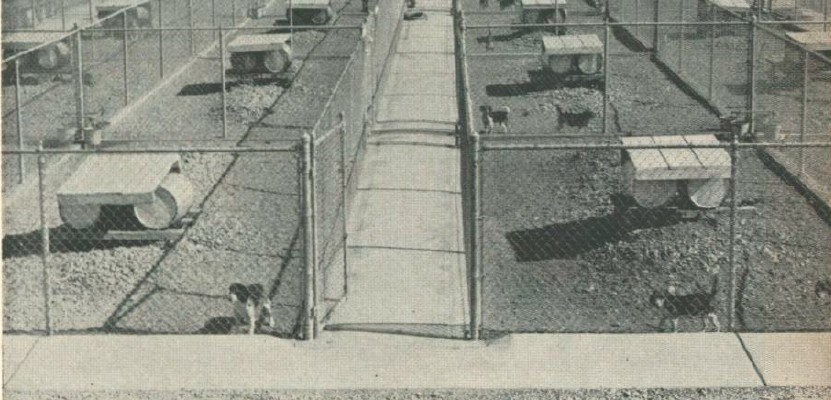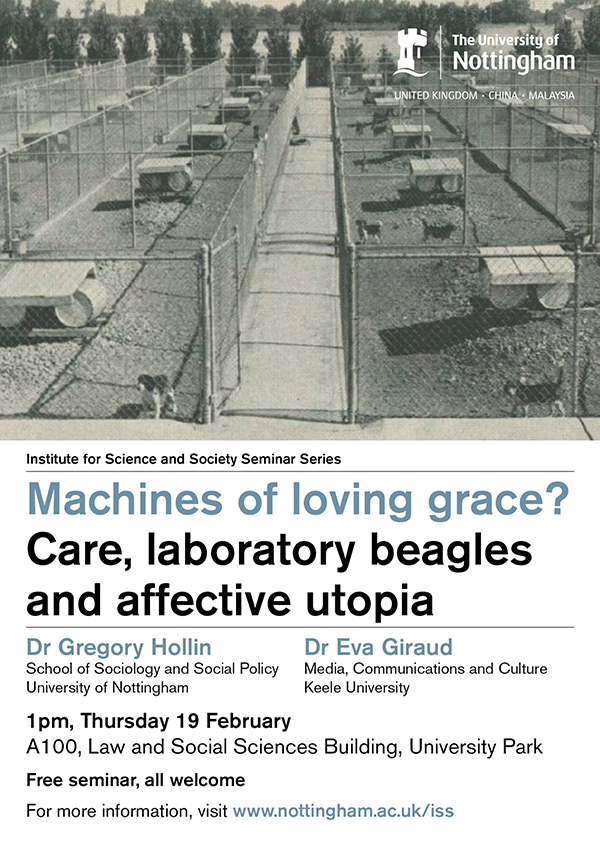Machines of loving grace? Care, laboratory beagles and affective utopia

In this talk Dr Gregory Hollin, School of Sociology and Social Policy, and Dr Eva Giraud, Keele University, seek to complicate narratives about the ethical and epistemic importance of care in the production of scientific knowledge. Read their abstract below:
The valorization of care is problematized by examining the standardization of beagles as laboratory dogs: Beagles being selected for use, in part, because their ‘merry disposition’ makes them easier to handle. We focus upon the first large-scale experimental beagle colony, a self-proclaimed ‘beagle utopia’ located at University of California, Davis, between 1951-1986. The colony illuminates two bodies of theoretical work, theories which stress both the affective qualities of care-work and its mundane, technical, dimensions respectively. Davis’ ‘utopic’ beagle environment is a striking elucidation of these theories, but the case also illustrates the less palatable capacity of care to enable the instrumentalization of life. We argue, therefore, that these beagles have far-reaching conceptual resonance and illustrate the need for more critical theories of care, affect, and trans-species communication.
Part of the Institute for Science and Society Seminar Series.
Tags: Eva Giraud, Gregory Hollin, Institute for Science and Society, ISS, Keele University, Sociology and Social Policy
Leave a Reply
Upcoming Events


